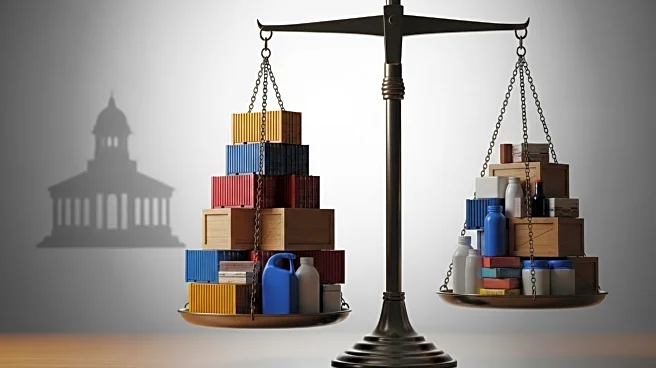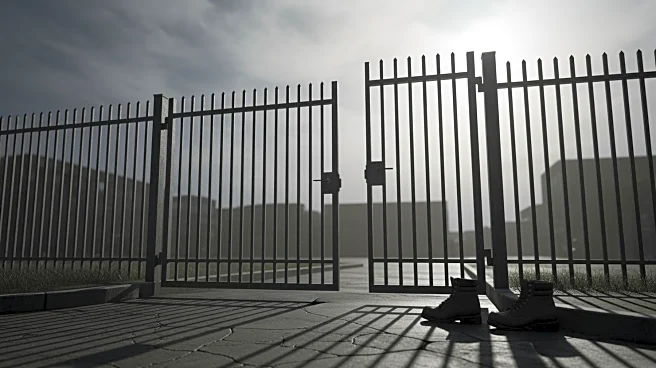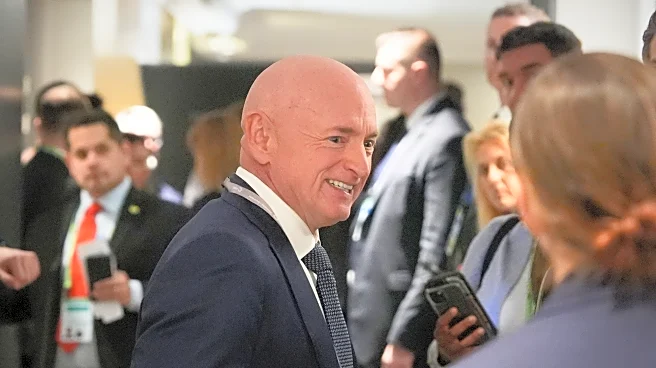What is the story about?
What's Happening?
An appeals court has ruled that most of President Trump's tariffs are illegal, but enforcement of the decision is delayed until mid-October to allow for a potential appeal to the Supreme Court. The U.S. Court of Appeals for the Federal Circuit in Washington, D.C., focused on tariffs imposed under emergency powers granted by a 1970s-era law. These tariffs, ranging from 15% on goods from the European Union to 50% on imports from India, were intended to rebalance global trade perceived as unfavorable to U.S. interests. The court found that the International Emergency Economic Powers Act does not authorize the president to impose such sweeping tariffs, marking a significant challenge to Trump's economic policy.
Why It's Important?
The ruling has significant implications for U.S. businesses and consumers, as the tariffs have been criticized for potentially increasing costs and contributing to inflation. Economists have raised concerns about the tariffs' impact on the global economy, suggesting they may hurt U.S. interests more than help them. The decision also highlights legal limits on presidential powers, particularly in using emergency powers for trade policy. If upheld, the ruling could lead to a reevaluation of trade strategies and impact international relations, especially with countries affected by the tariffs.
What's Next?
The White House has expressed confidence that the Supreme Court will overturn the decision, indicating a likely appeal. If the ruling stands, it could lead to significant changes in U.S. trade policy and affect ongoing trade negotiations. Businesses and consumers may see changes in pricing and availability of imported goods, depending on the outcome. Political leaders and stakeholders will likely engage in discussions on the future of U.S. trade policy and its alignment with legal frameworks.
Beyond the Headlines
The ruling may prompt broader discussions on the use of emergency powers in economic policy and the balance of power between the executive branch and the judiciary. It could also influence future administrations' approach to trade and economic policy, emphasizing the need for clear legal authority in imposing tariffs. The decision may affect international perceptions of U.S. trade practices and its commitment to global trade norms.
















